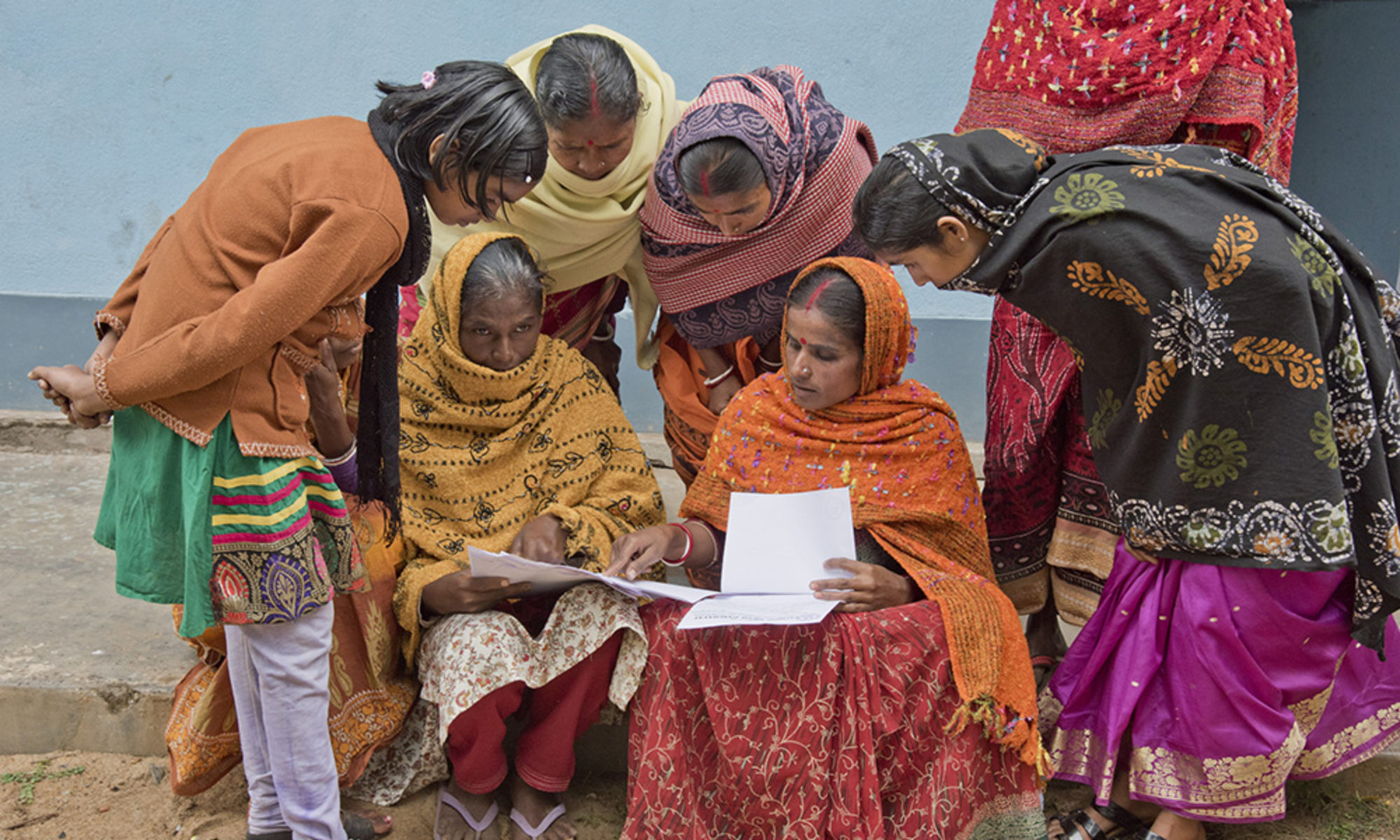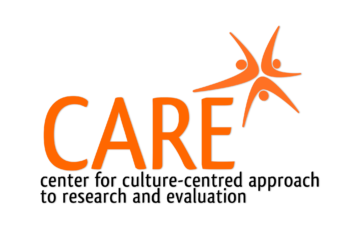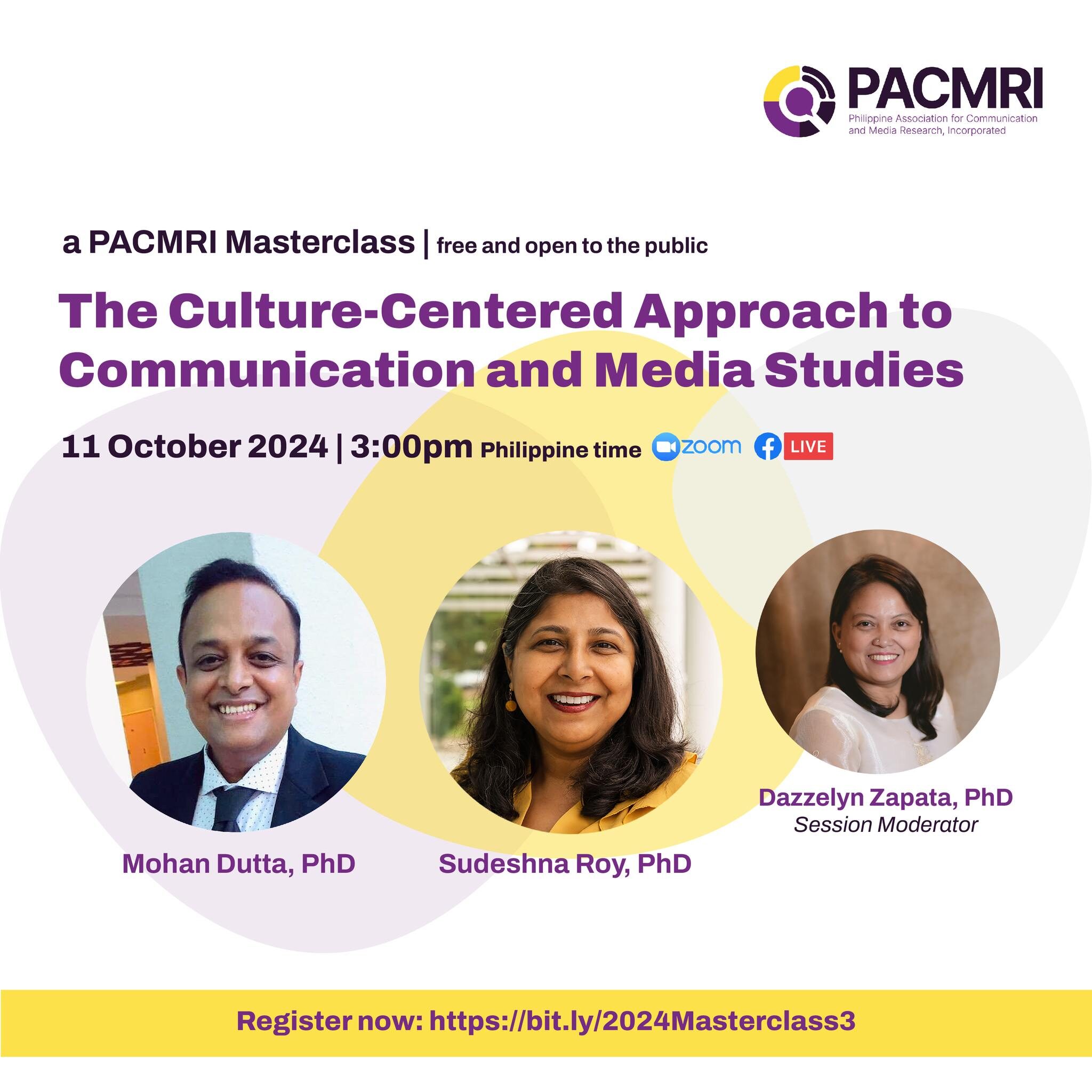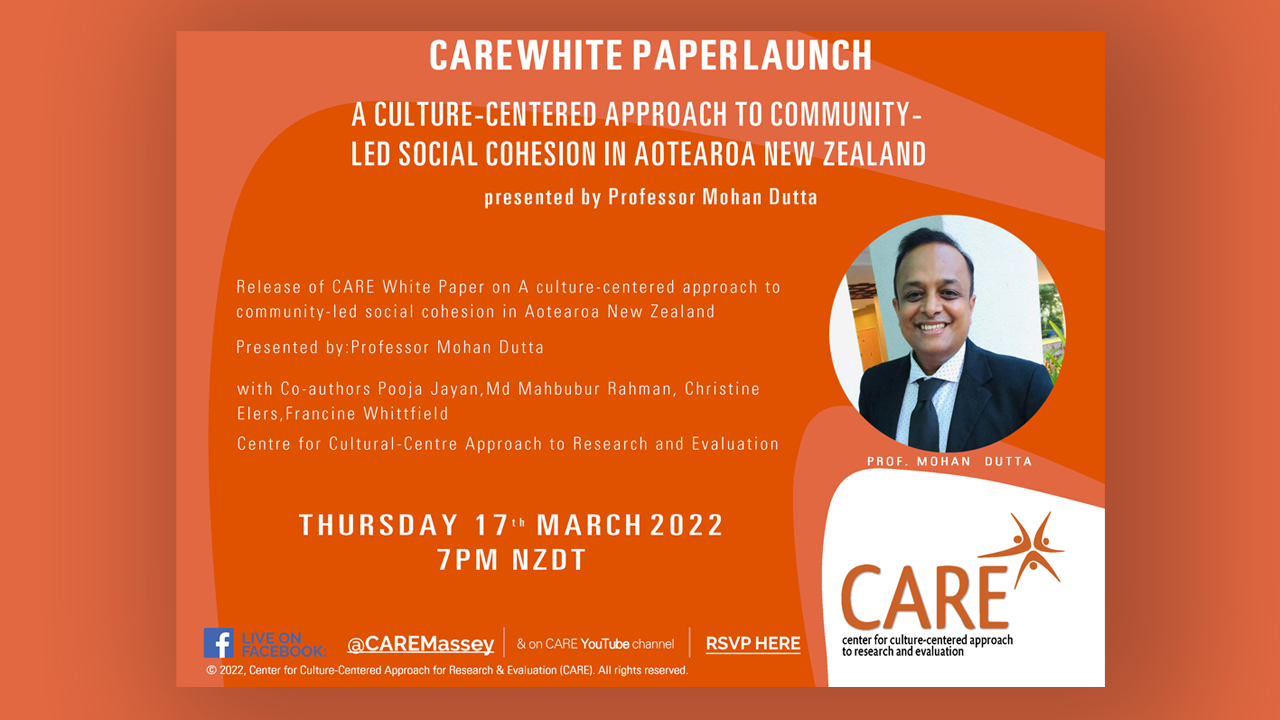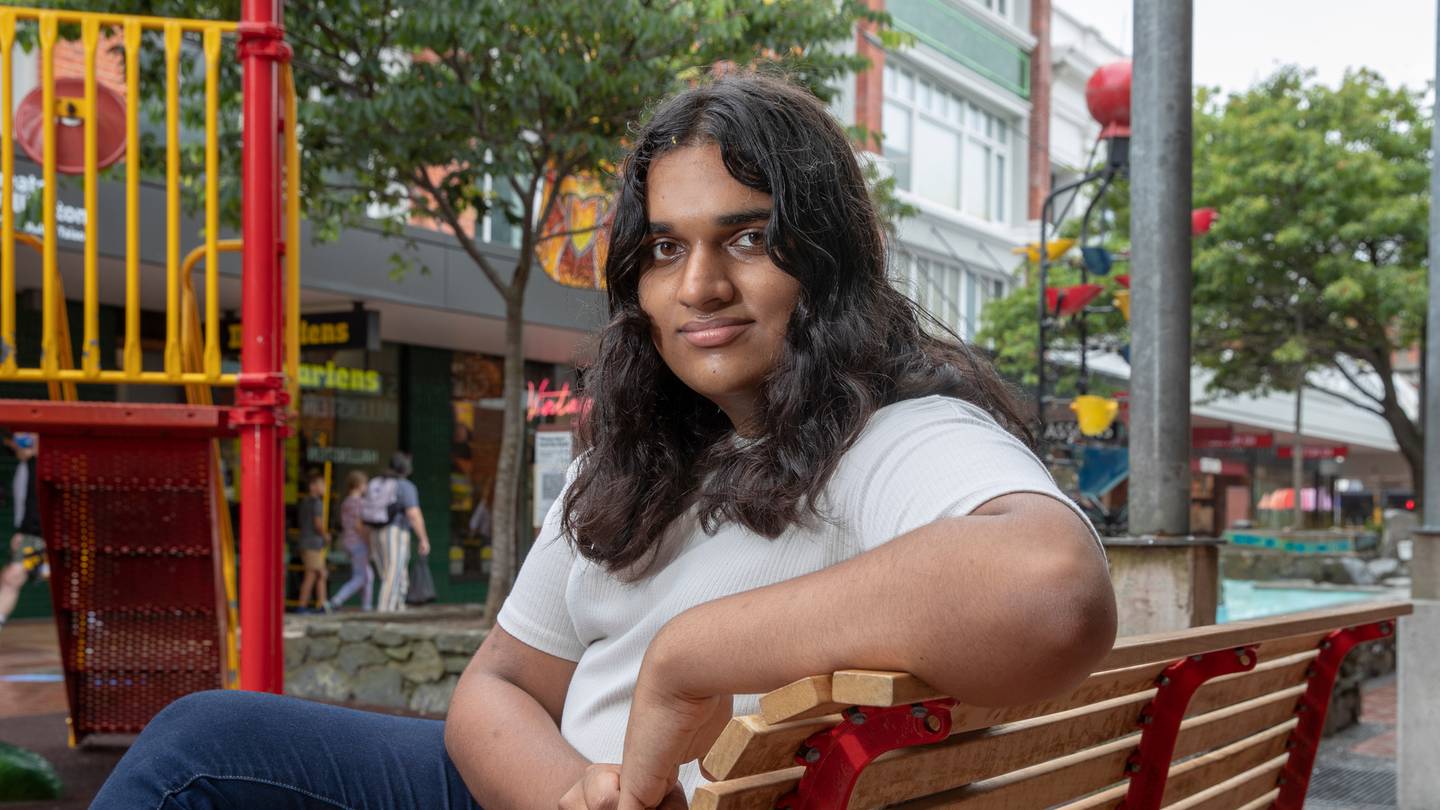Prof Mohan Dutta, CARE, Massey University presenting at Philippine Association for Communication and Media Research, Inc (PACMRI) Masterclass 2024
Center for Culture-Centered Approach to Research and Evaluation (CARE) is proud to share that Prof. Mohan Dutta, Massey University will be featuring at the PACMRI Masterclass 2024 on 11 October 2024 | 3PM Philippine Time on Zoom and Facebook LIVE with renowned scholars.
Date: 11 October 2024 | 3 PM Philippine Time via Zoom and Facebook Live
Discover the Culture-Centered Approach to Communication and Media Studies!
Are you passionate about amplifying marginalized voices and challenging dominant narratives? Join us for the fourth Philippine Association for Communication and Media Research, Inc. PACMRI Masterclass to explore a transformative framework that centers these communities in media and communication featuring renowned scholars Prof. Mohan Dutta from Massey University , Dr. Sudeshna Roy from Marquette University and Dr. Dazzelyn Baltazar Zapata from the University of the Philippines
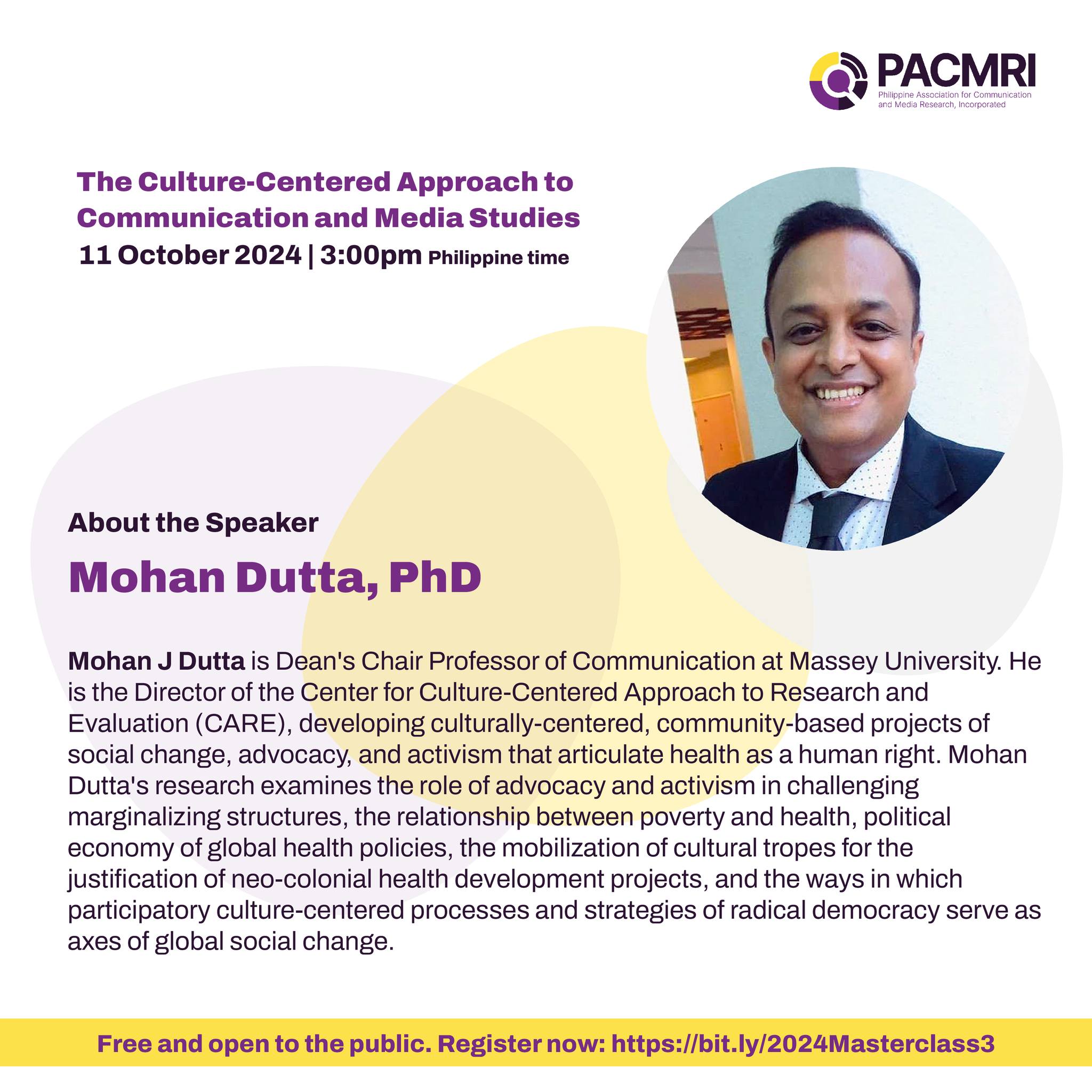
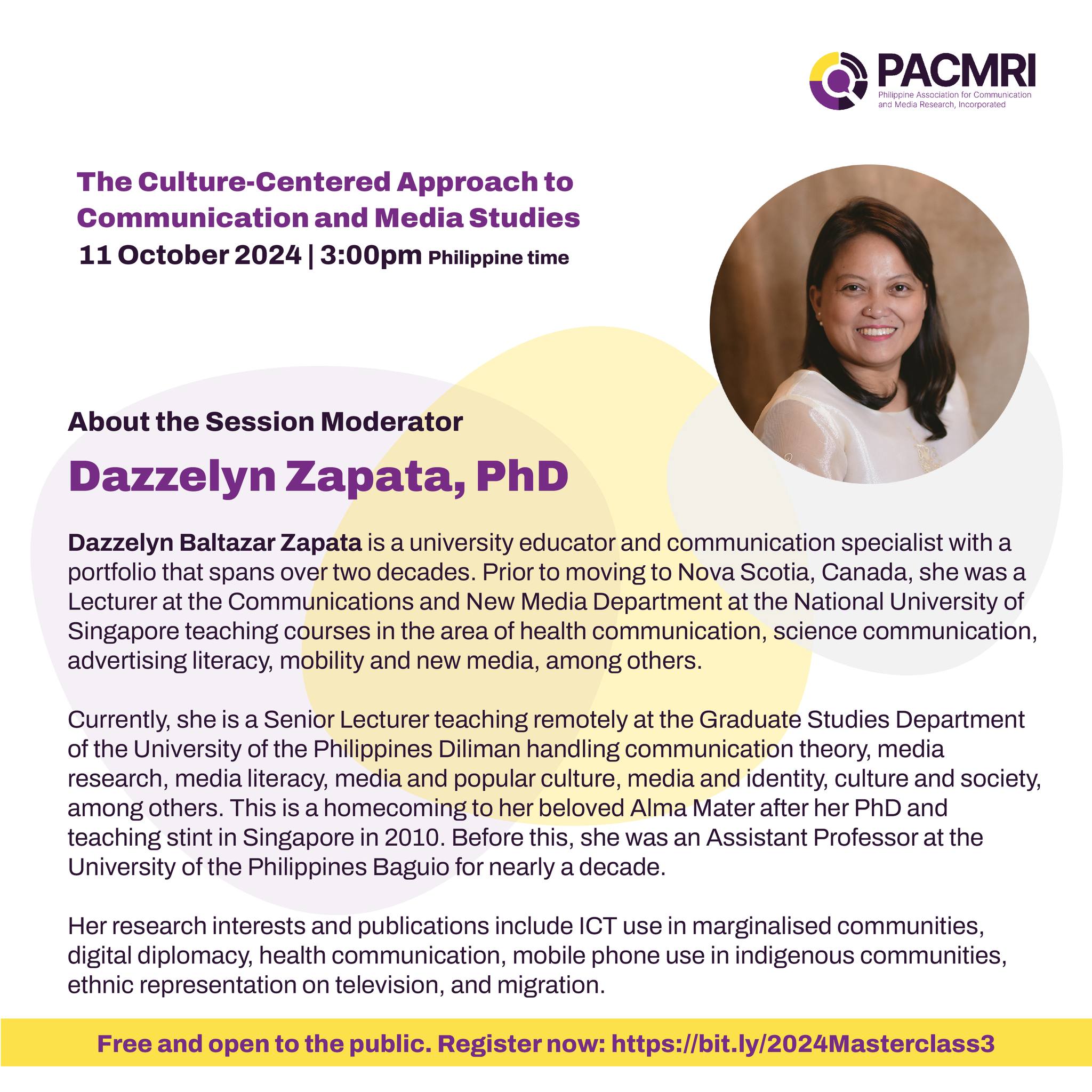
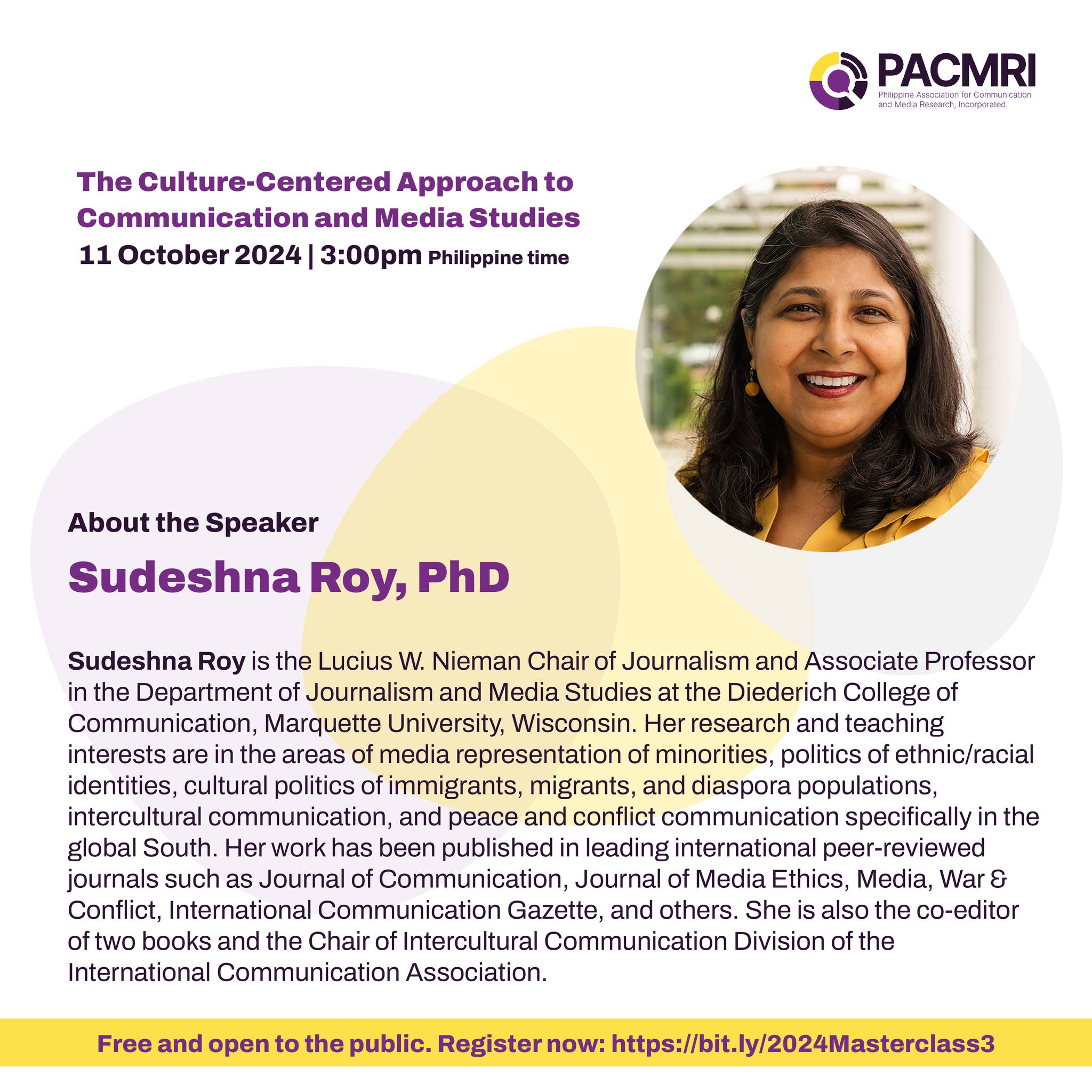
Register for the Zoom session here: https://bit.ly/2024Masterclass3
#CultureCenteredApproach #CommunicationStudies #MediaStudies #SocialChange #RadicalDemocracy #PACMRIMasterclass #MohanDutta #SudeshnaRoy #DazzelynBaltazarZapata #UPLBCommunication #MasseyUniversity #MarquetteUniversity #UPDiliman #EmpowermentThroughMedia #AmplifyVoices #InclusiveCommunication
Culture Centered Approach to Violent Extremism
Professor Mohan Dutta outlines a culture-centered approach to countering violent extremism
CARE Director, Professor Mohan J. Dutta, Massey University named in the latest World’s Top 2% Scientists List by Stanford University
We wrap up the year congratulating our Director, Professor Mohan Dutta, for being ranked among the Top 2 Percent scientists globally published by Stanford University. In these rankings, Professor Dutta is ranked first in Aotearoa New Zealand in his discipline.
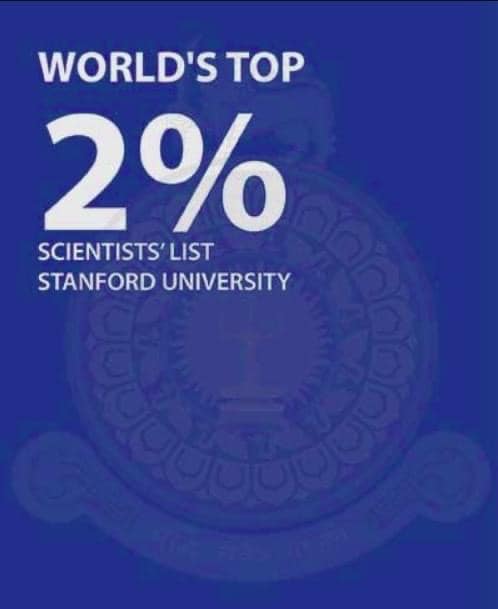
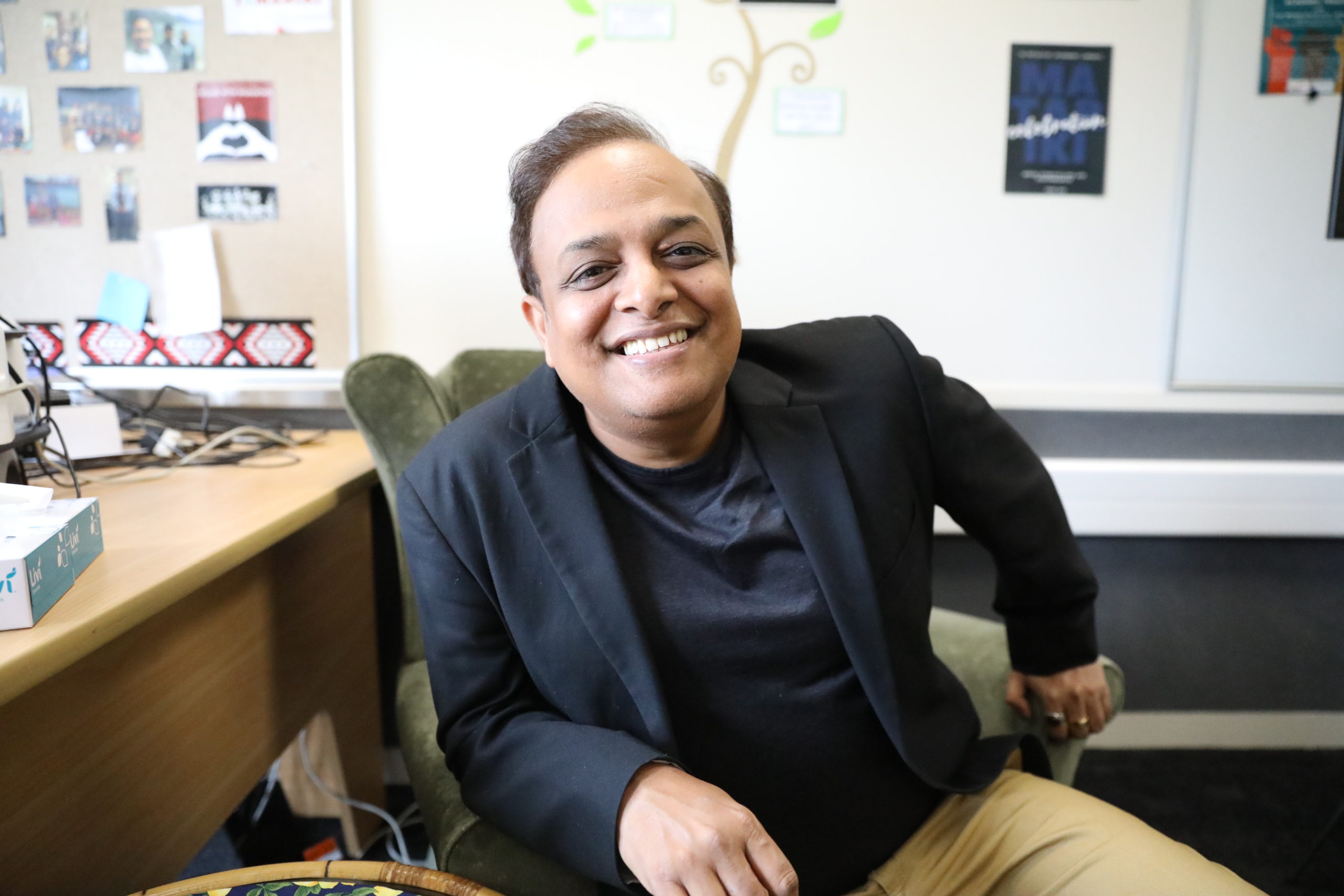
CARE Postdoctoral Fellow Dr. Phoebe Elers receives the 2022 MSA MBS Research Excellence Award by Massey Business School
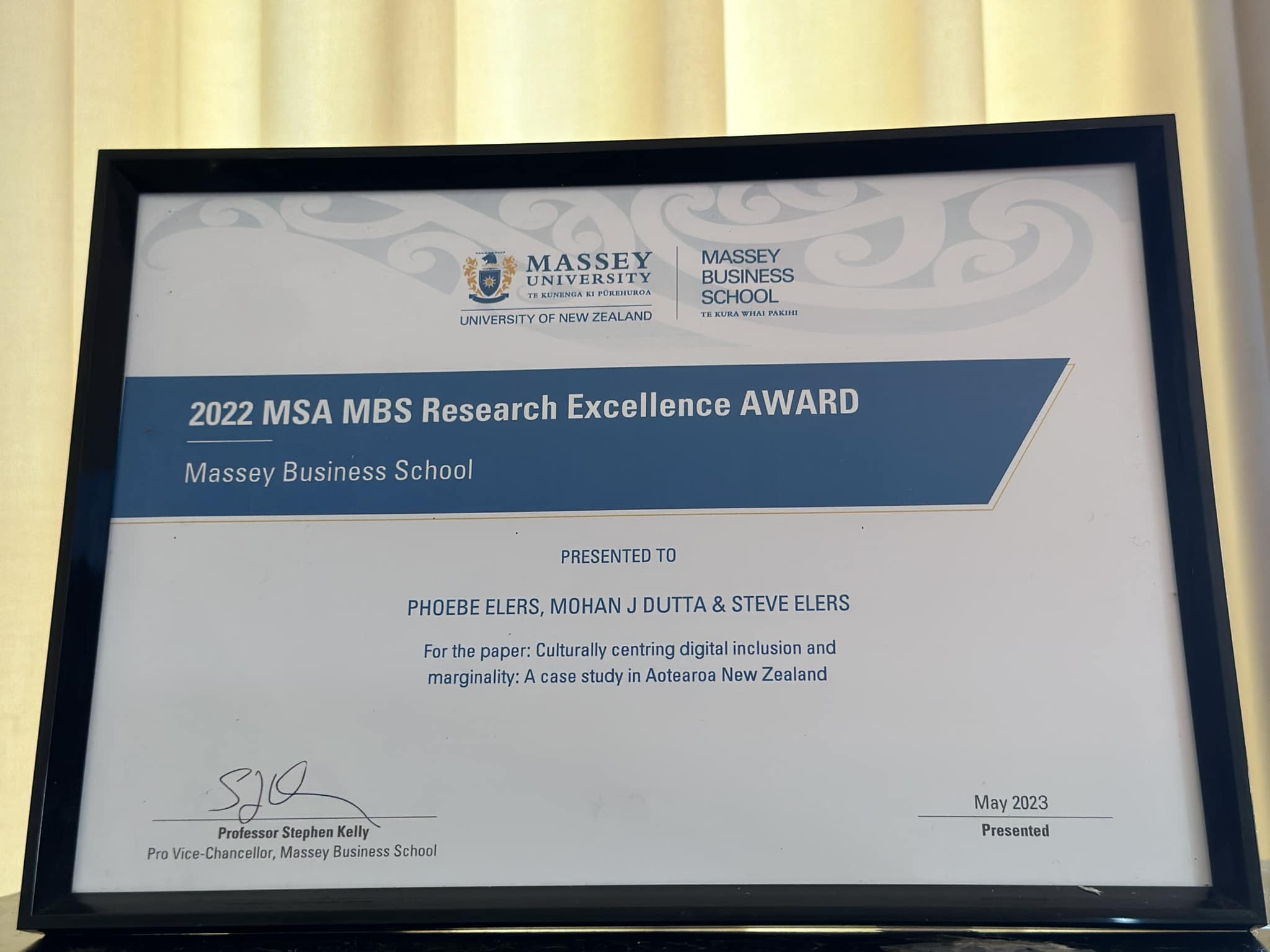
Being recognised in our own College, the Massey Business School, for our research excellence, gives us joy, says Prof. Mohan Dutta. CARE is grateful to the significant contributions made by Dr. Phoebe Elers as a postdoctoral fellow. Phoebe has led a range of culture-centered interventions and is an important contributor to the theorising of the culture-centered approach (CCA).
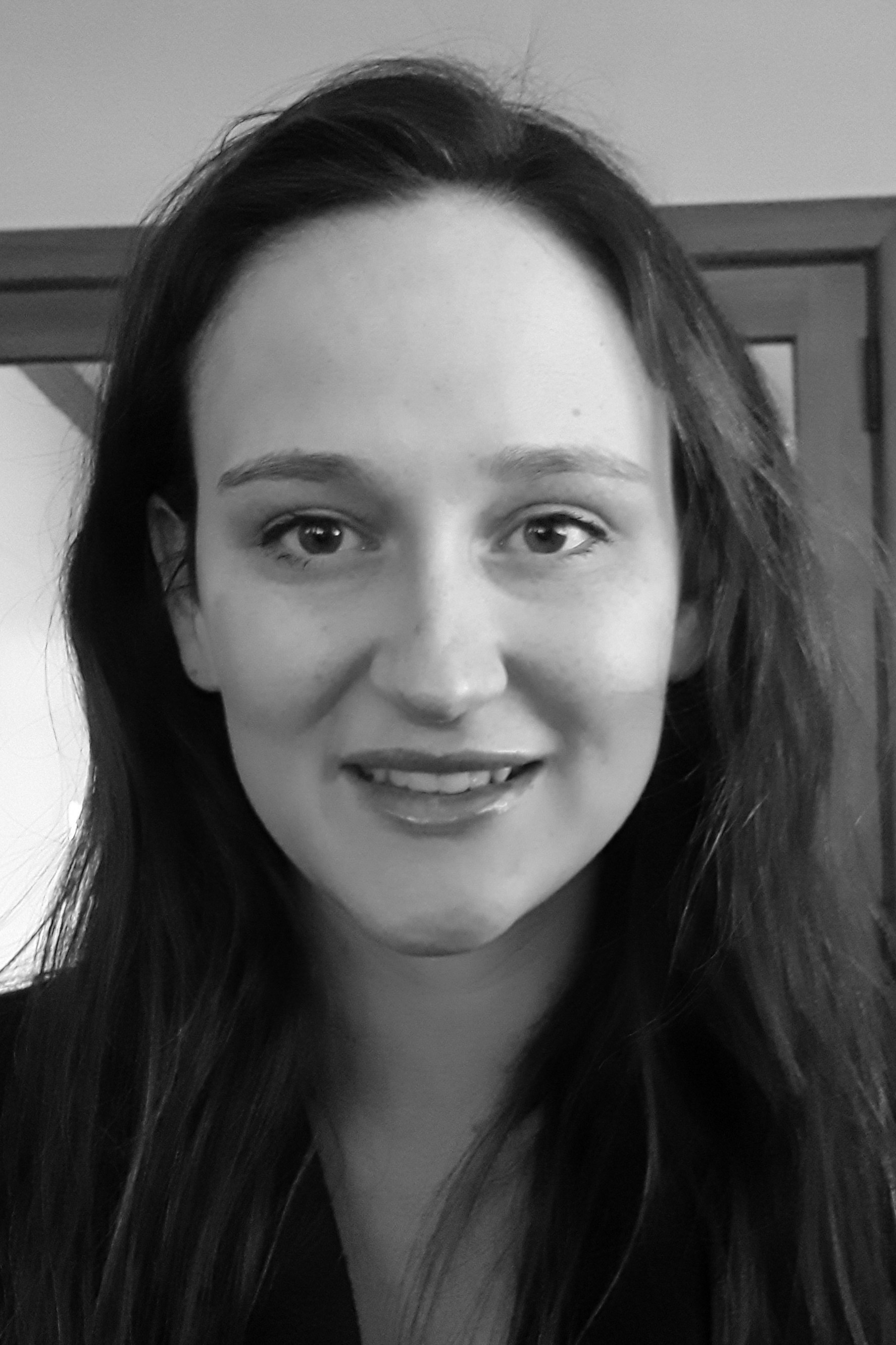
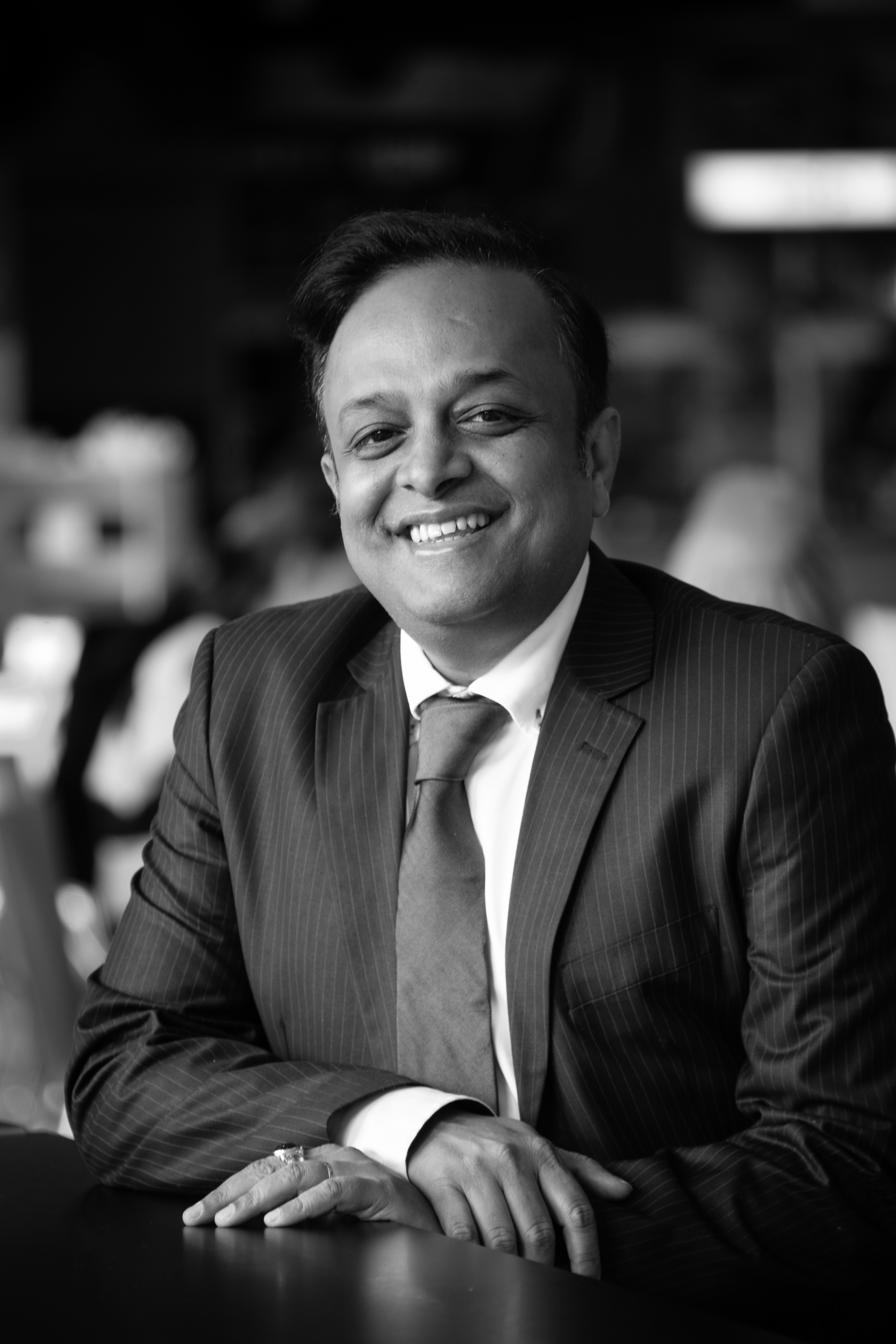
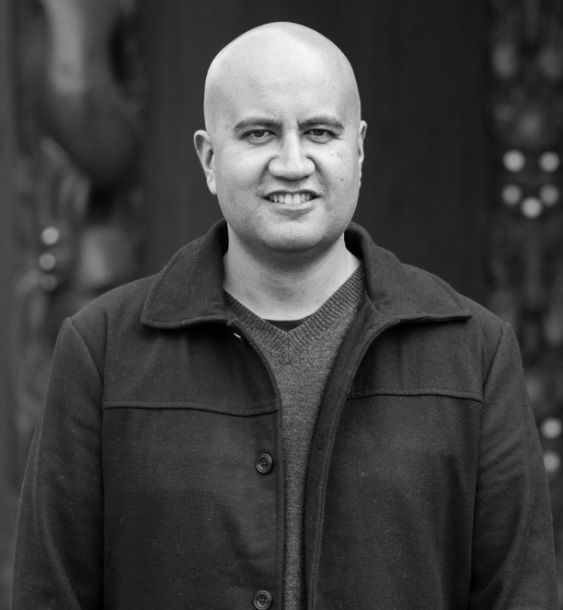
The 2022 MSA MBS Research Excellence Award is presented to Dr. Phoebe Elers, Prof. Mohan Dutta and Senior Lecturer Dr. Steve Elers from School of Communication Journalism and Marketing, Massey Business School for the paper: Culturally centering digital inclusion and marginality: A case study in Aotearoa New Zealand.
Link to paper- https://journals.sagepub.com/doi/abs/10.1177/14614448211063180
CARE Director, Professor Mohan J. Dutta, Massey University named in the latest World’s Top 2% Scientists List by Stanford University
CARE: Center for Culture-Centered Approach to Research and Evaluation congratulates its Director, Professor Mohan J. Dutta, Massey University for being named in the latest World’s Top 2% Scientists List (Stanford University). The excellence in the research impact at CARE is reflective of the contributions of our collective of community advisory groups, community researchers, activists-in-residence, and academic research teams working tirelessly to build strong communities as participants in organizing for social change.
We are proud of this recognition of excellence that speaks to the impact our collective scholarship makes to the theorizing of justice-based health communication processes, demonstrating the power of culture-centered community-based communication organizing for social change in transforming colonial, capitalist, patriarchal, racist and casteist structures.
Check out the Dataset- https://elsevier.digitalcommonsdata.com/data…/btchxktzyw/4
Photo by Vivien Beduya.
#ElsevierBV #CAREMassey #WorldsTopScientistsList #CultureCenteredApproach #CommunityBasedCommunication #SocialChange #HealthCommunication #StanfordUniversity #CARECCA #MasseyUni
CARE White Paper Launch- Issue #14: A Culture-Centered Approach to Community-led Social Cohesion in Aotearoa
Join us on Thursday, 17 March 2022 at 7PM (NZDT) for the release of the CARE White Paper: “A Culture-Centered Approach to Community-led Social Cohesion in Aotearoa New Zealand”
The launch will be presented by Professor Mohan J Dutta, Dean’s Chair of Communication & Director of CARE.
The White Paper is co-authored with Pooja Jayan, Md Mahbub Rahman, Christine Elers, and Francine Whittfield, CARE: Center for Culture-Centered Approach to Research and Evaluation
Facebook Event Link : https://www.facebook.com/events/2196384167179941/
Facebook Premiere Link: https://www.facebook.com/events/311510504299109
News: Massey research paper on Hindutva leads to trolling, persecution and threats via NZ Herald
Massey research paper on Hindutva leads to trolling, persecution and threats via NZ Herald
CARE: Center for Culture-Centered Approach to Research and Evaluation stands in solidarity with its research team members Richa Sharma, Balamohan Shingade, and others (Indigenous women and women of colour) not mentioned in this report for their courage in documenting extremist #Hindutva nationalism and in building culture-centered preventive interventions rooted in dialogue, peace, and voice.
Full article:
Richa Sharma was doing research on religious extremism in Aotearoa when she got a call from her mother. Her aunties and uncles, close family friends who have known her since she was born, were convinced she was a terrorist.
For a few months last year, Richa Sharma did not go out after dark, always making sure she had safe ways to get around for work and meetings.
The 18-year-old was interning at Care, a Massey University research centre that was copping online abuse for publishing a white paper about the far-right nationalist ideology known as Hindutva and its creeping presence in Aotearoa.
There were calls for centre director Professor Mohan Dutta to be sacked, even burned alive. Police said the trolls were overseas, but an Auckland-based Indian news site published a piece calling Dutta a “left-leaning bigot under the garb of an academician”, and part of “a gang of some smelly rats”.
The Hindu Council and Hindu Youth New Zealand chimed in with nearly identical statements, condemning the paper for “accusatory and unsubstantiated assertions” that made the Hindu community look bad. Hindu Youth said it was “outright Hindu hatred”.
Most of the vitriol was directed at Dutta but his team, some of them South Asian and female, were not spared. Their profiles were public on the Care website and social media pages.
“We had to watch our steps carefully,” said Sharma, now 19. “I really didn’t feel safe. We had a police file open.”
Shortly after, an auntie and uncle reached out to Sharma’s mother back home in Palmerston North. They were not related by blood but it was custom in the community to address close family friends as auntie and uncle.
Over tea, Sharma’s mother was told her daughter worked for an anti-Hindu outfit and was urged to intervene. Auntie and uncle were convinced Sharma was a “left-wing, radical terrorist”.
Another auntie sent text messages condemning the white paper, including a petition against Massey University to take it down.
Source: NZ Herald
#CAREMasseyNZ #MasseyUni #CARECCA #CultureCenteredApproach #Solidarity #Hindutva #Nationalism #Aotearoa #NewZealand
